Africa
Thousands of South Africans express interest in US resettlement plan
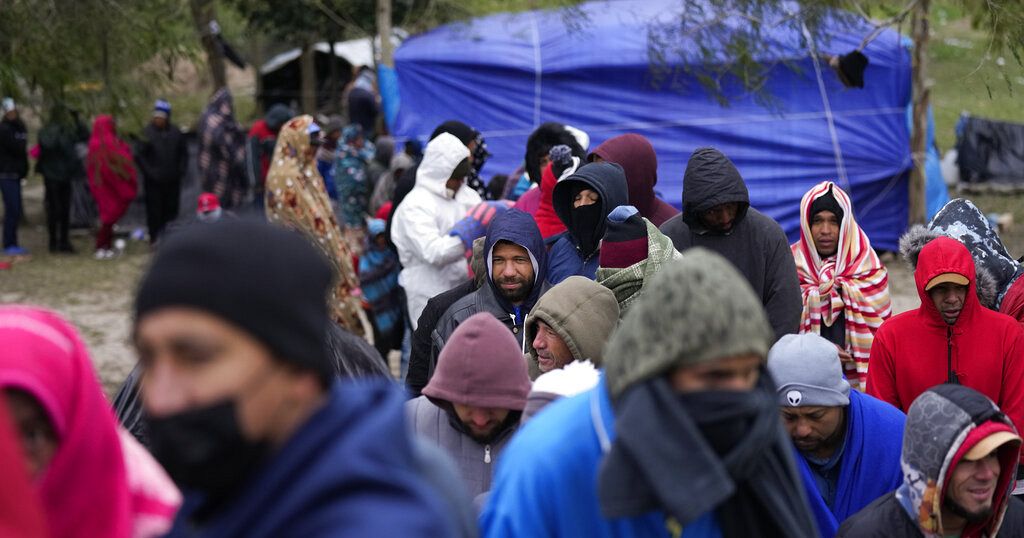
Nearly 70,000 South Africans have shown interest in relocating to the United States following Washington’s initiative to resettle members of the country’s Afrikaner community, according to a business group.
The South African Chamber of Commerce in the USA (Saccusa) reported that its website was inundated with registrations from individuals seeking more details about the program.
In a February executive order, President Donald Trump stated that Afrikaners—descendants of predominantly Dutch settlers from the 17th Century—qualified for refugee status as they were “victims of unjust racial discrimination.”
Diplomatic relations between the US and South Africa have deteriorated since Trump took office in January.
Saccusa described the submission of the registration list to the US embassy in Pretoria as a “significant milestone.” An embassy representative confirmed to the BBC that the document had been received.
According to Saccusa’s president, Neil Diamond, 67,042 individuals registered, with the majority bearing Afrikaner or English surnames. The group noted that most applicants were between the ages of 25 and 45 and had two to three dependents.
Saccusa, which represents South African businesspeople residing in the US, is not a government-affiliated entity but became involved in the registration process after an influx of inquiries about the resettlement initiative, Diamond told broadcaster Newzroom Afrika.
While some white South Africans claim they face discrimination, their concerns have gained traction among right-wing groups in the US. However, more than three decades after apartheid ended, South Africa’s white minority continues to control most of the nation’s private land and wealth.
Tensions between Pretoria and Washington intensified in January when South African President Cyril Ramaphosa enacted legislation permitting land expropriation without compensation in cases deemed to serve the “public interest.”
This law followed longstanding demands for land redistribution, with activists and political leaders advocating for the transfer of farmland from white landowners to Black South Africans.
Trump reacted by issuing an executive order extending refugee status to Afrikaners, arguing that they were facing “state-sanctioned racial discrimination.”
By March, Trump broadened the offer to include all South African farmers, describing the country as “a dangerous place for them.” The following month, he cut financial aid to South Africa.
Ramaphosa pushed back against Trump’s remarks, asserting that no land had been confiscated and that the new legislation aimed to guarantee “fair and just access to land in accordance with the constitution.”
Despite this, diplomatic hostilities have escalated. Last week, Washington expelled South Africa’s ambassador, with US Secretary of State Marco Rubio branding him a “race-baiting politician.”
Africa
Dangote submits paperwork to build “biggest, deepest” port in Nigeria
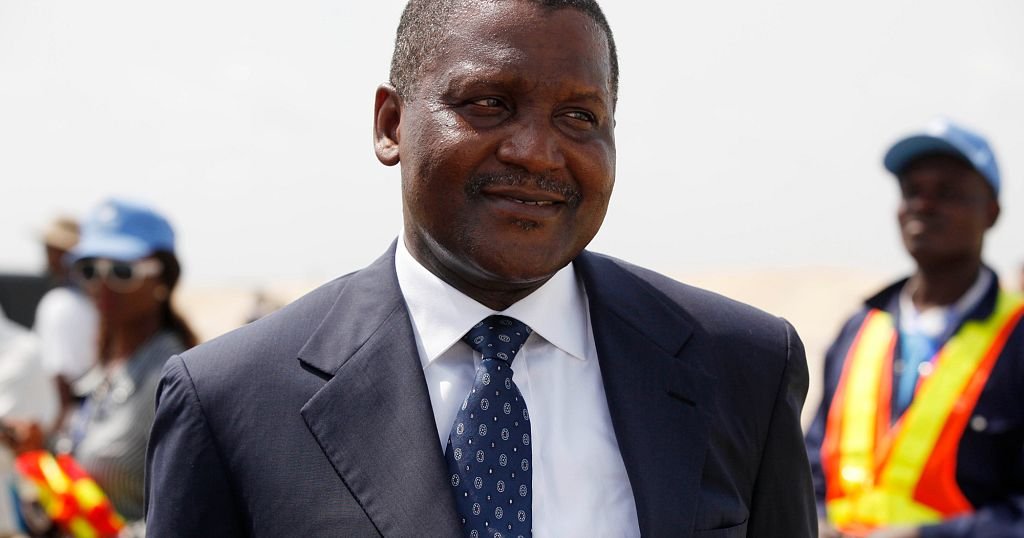
Fertiliser, oil, liquefied natural gas, cement… The Dangote conglomerate, a group owned by Africa’s richest man, Aliko Dangote, is active in a range of industries.
Exporting its many products is key for the group – and now, plans for a new port could help with that.
Dangote reportedly submitted a construction proposal for a seaport located in Ogun state in southwestern Nigeria to the regional authorities in late June.
The project could be the biggest and deepest port in Nigeria. According to the proposal, the port would be constructed in the Olokola Free Trade Zone, a project initially abandoned by Dangote over unresolved issues with the previous local administration.
The port’s planned location is around 100 km away from key Dangote fertilizer and petrochemical plants in Lagos. Initially, these plants were supposed to also be located in the Free Trade Zone in Ogun state, but the stalled negotiations between the conglomerate and the state’s previous administration led to plants eventually being built near Lagos.
It is for now unclear whether the proposal for the new port has been accepted.
Africa
Islamic preachers in Burkina Faso rally against social media hate

Nearly 250 imams and Islamic preachers joined a national awareness session against online hate speech Saturday and Sunday, following a surge in extremist violence in Burkina Faso.
At the workshop hosted by Burkina Faso’s Federation of Islamic Associations (FAIB), attendees were handed a guide on public speaking for preachers which forbids the use of Islamic discourse to disturb stability, including insulting and violent rhetoric, RFI reported.
”We encourage Muslim youth to use social media responsibly and are committed to strengthening the ongoing training of imams and preachers on digital issues and religious communication”, the federation said on Facebook following the workshop.
Failure to comply with the new code of conduct online may result in disciplinary or even criminal sanctions: including a ban of up to two years from preaching, RFI reported.
In October, a video emerged of a preacher urging his supporters to attack members of another Muslim congregation. The incident made FAIB sound the alarm on the ”emergence of dangerous deviations in religious discourse”, according to RFI.
The growing number of social media users in Africa is a “double-edged sword”, according to a UNDP report, due to its utility for violent actors to “market extremist ideas and spread terror to different audiences around the world”.
Social media platforms can facilitate radicalisation by promoting content with emotional appeal that taps into the grievances of users and reinforces their frustrations, according to the report.
The proliferation of religious hate speech online is concerning amid a surge in violent extremism in Burkina Faso. Terrorism-related deaths in the Sahel region have soared past 6,000 for three consecutive years, making up more than half of all global fatalities, said UN Deputy Secretary-General Amina Mohammed in January.
In this time, Burkina Faso has seen a 68% increase in terrorism fatalities, making it the leading country in the world for terrorism deaths, according to UN figures.
Africa
Togo’s security forces cast early votes ahead of high-stakes municipal elections
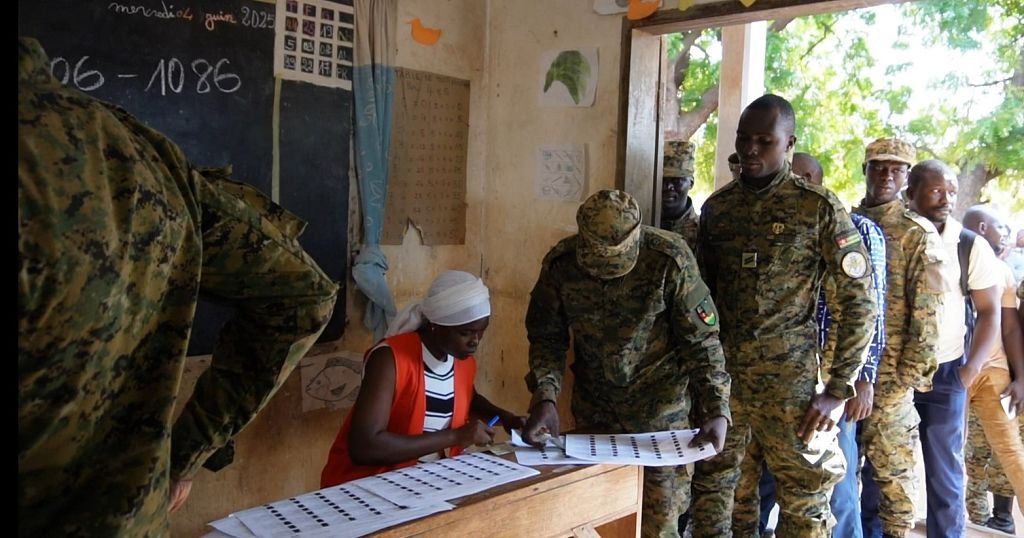
The atmosphere was calm and disciplined on Monday, July 14, 2025, in Lomé, as Togo’s security and defense forces, including paramilitary units and members of the operational reserve, cast their ballots in early voting ahead of the municipal elections. This special vote was organized to allow them to fulfill their civic duty while remaining available to ensure the security of the general election scheduled for July 17.
At the polling station, the voting process went smoothly in a strictly orderly environment.
“There hasn’t been a single incident. So far, everything is going well, and they are voting calmly,” said Poutouli Pisseyem, the polling station president. “They follow all our instructions,” he added.
This early vote marks the official kickoff of a highly anticipated municipal election, watched closely by both the political class and a public caught between hope and caution. On the ground, the campaign is in full swing. Political parties and independent candidates are making rounds to win over voters. Supporters of the ruling party, UNIR, are focused on consolidating progress.
“Go vote, vote for UNIR, because we need continuity in the work already being done,” said Geneviève Amégnaglo, a local UNIR delegate.
On the opposition side, some leaders insist on maintaining their presence despite boycott calls from parts of civil society.
“To improve living conditions, the opposition must take part and show what it’s capable of,” said opposition leader Jean-Pierre Fabre.
Still, the apparent calm masks underlying tensions. Civil society groups have called for days of mourning on July 14 and 15, while web activists from the M66 movement have announced protests for July 16 and 17, the day of the vote.
With just hours left before polls open for the general public, the streets are watching, uncertain. Togo’s democracy is facing another major test, under close watch.
-

 Europe5 days ago
Europe5 days agoWhat will happen now that Trump has turned on Putin?
-

 Lifestyle5 days ago
Lifestyle5 days agoPhotos of Cuban women with long decorated nails
-

 Sports5 days ago
Sports5 days agoBill Ackman: Swift backlash after billionaire’s pro debut
-
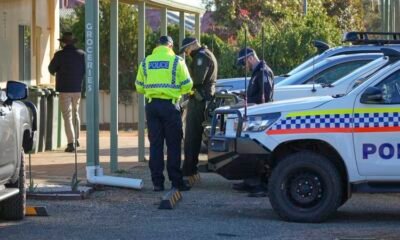
 Europe4 days ago
Europe4 days agoGerman tourist found alive 12 days after she was lost in the Australian Outback
-

 Lifestyle4 days ago
Lifestyle4 days agoOne Tech Tip: All the ways to unsubscribe, after ‘click-to-cancel’ was blocked
-

 Lifestyle5 days ago
Lifestyle5 days agoCuban women spend on extravagant nail art
-
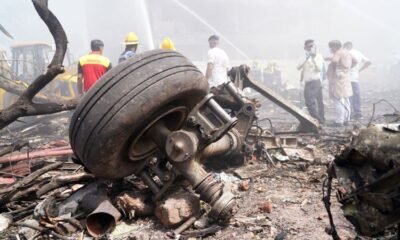
 Asia4 days ago
Asia4 days agoAir India crash: Engine fuel supply was cut just before Air India jet crash, preliminary report says
-
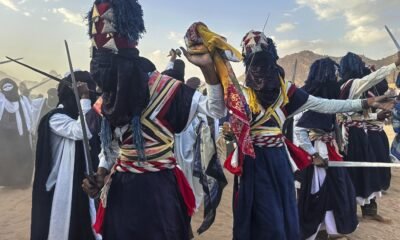
 Lifestyle5 days ago
Lifestyle5 days agoSebeiba festival in Algeria carries on ancient tradition




